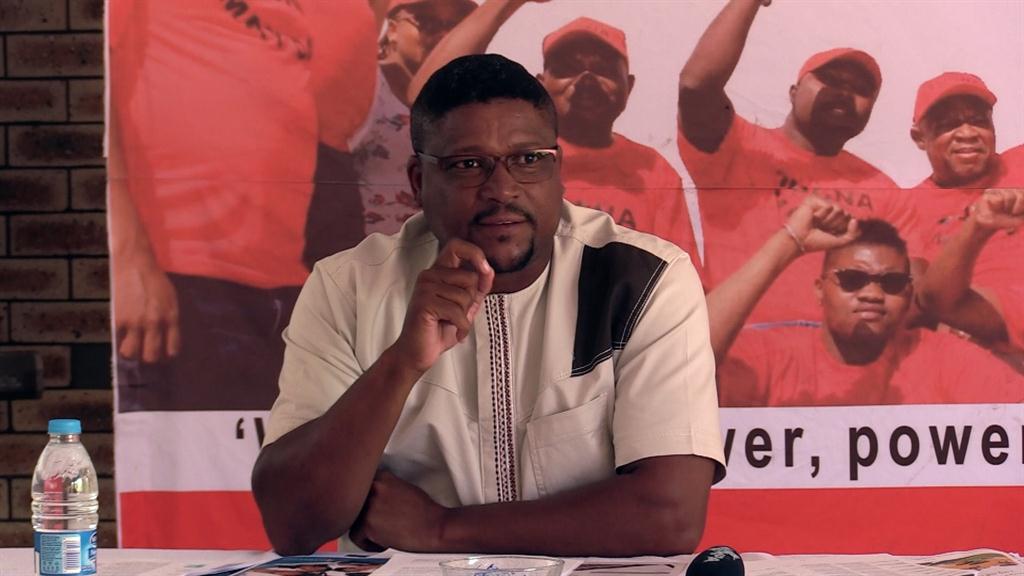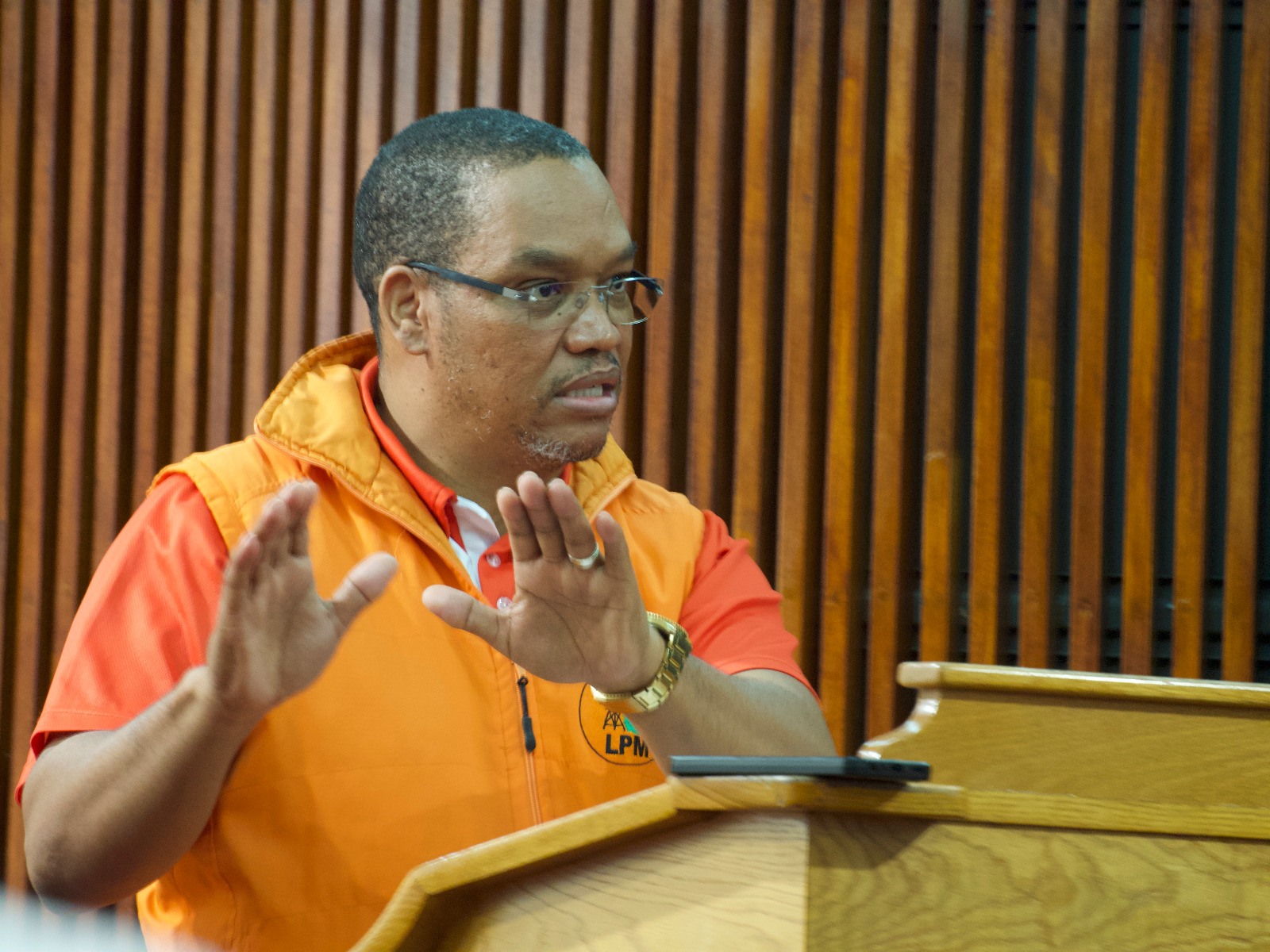Unionists have questioned labour, industrial relations and employment creation minister Utoni Nujoma’s competency after he announced a national minimum wage of N$18 on Monday.
Trade Union Congress of Namibia secretary general Mahongora Kavihuha says the labour ministry has been regarded as a dumping ground for non-performing ministers.
“Every non-performing minister is brought to the ministry of labour. That kind of culture must change,” he says.
“We need someone who has lived close to the workers, who understands the industry, who gains some respect across the state quarters in labour, who is a lawyer … [they] must be appointed as a minister of labour, not someone who has not been replaced since independence,” he adds.
Kavihuha’s comments follow Nujoma’s announcement last week of an increase of the national minimum wage for all Namibian workers to N$18 per hour.
This excludes domestic and agriculture workers’ salaries, which will remain unchanged, but will increase gradually over three years until they reach N$18 per hour.

Some workers’ unions say the decision could potentially lead to a wave of retrenchments.
Kavihuha has criticised employers and says they are using threats of retrenchment to oppose the national minimum wage, which is aimed at improving workers’ lives.
“When there is anything that is being proposed that will contribute to the betterment of workers’ lives, the employers, as capitalists, are always threatening the process with retrenchment and those kinds of things.
“As far as we are concerned, we are not moved by that. Let the whole economic space restructure itself around the issue of a national living wage. We are used to those threats,” he says.
NOT SUFFICIENT
Mineworkers Union of Namibia (MUN) general secretary George Ampweya yesterday told The Namibian the introduction of the national minimum wage is not even sufficient to sustain a household of three people and their children.
“It is in the right direction, but not sufficient to support households. It is an improvement we commend, but we would like to push for the government to do better,” he said.
He noted that various service station owners have approached MUN to say the new minimum wage is too high and will lead to worker retrenchments.
“Service station employers have said the minimum wage increase is extreme. They are pushing for it to be reduced. Six service station owners from the northern regions and Erongo have approached us, saying they will have to retrench some employees because the wage increase will cripple their businesses,” he said.
According to Ampweya, the employers are currently paying N$9 per hour, and the sudden rise to N$18 per hour, with only three months to prepare, is overwhelming, they say.
“We are, however, in discussions to reach an agreement to prevent our workers from becoming jobless,” he added.
Labour expert Herbert Jauch says although some employers will be quick to criticise the proposed minimum wage as unaffordable and may even threaten retrenchments, a national minimum wage is long overdue.
“Namibia’s labour market is still characterised by very low wages and widespread exploitative practices.
This is a result of maintaining colonial economic structures, which were based on cheap black labour, a trend which continued after Namibia achieved political independence.”

OVERCOMING POVERTY
According to Jauch, the labour ministry’s announcement of a national minimum wage spells out what it aims to achieve – improving the wages of the lowest-paid workers, reducing income inequality, alleviating poverty and achieving a decent standard of living for all.
“These are certainly laudable goals and should be widely supported. The wage level of most Namibian workers is very low.
Also, collective bargaining between trade unions and employers is limited to a few sectors where workers are unionised, such as the public sector, mining and fishing.
“In addition, there are some sectoral minimum wages like those for domestic workers, farmworkers, security guards and construction workers.
However, these wages are so low that they lock workers into poverty even if they have full-time jobs,” he says.
He further says long before the national minimum wage was announced, workers already experienced frequent violations of their legal entitlements, such as paid annual leave, paid sick leave or double pay for overtime.
“A key question is how Namibia can ensure the national minimum wage is paid in all sectors and how we can move towards a living wage instead of being stuck at minimal levels?
“National enforcement of the minimum wage will require an improved labour inspectorate, stronger trade unions willing to work with each other, as well as employers’ organisations willing to play an active role in convincing members to adhere to the legal provisions,” he adds.
VULNERABLE WORKERS
Namibia Public Workers Union (Napwu) deputy general secretary Matheus Ndeshikeya says the introduction of the minimum wage will help vulnerable workers.
“We are not sure how compliance will be handled, but we hope it will help vulnerable workers.
That’s basically how I feel.
“For domestic workers and farmworkers, the implementation will be phased in over three years to give employers time to adjust.
You know that the employers of domestic workers are mostly workers themselves, so they need time to prepare to implement the N$18 wage gradually,” he notes.
According to Ndeshikeya, the minimum wage increase was Napwu’s idea.
“The view is that this will go a long way in elevating the most vulnerable workers.
As unions, specifically from Napwu, we were represented in the commission and held public consultations to establish the minimum wage.
“In fact, the N$18 wage was part of the submission from Napwu. Obviously, it will require a lot of resources, especially from the government, to ensure compliance,” he says.
Nujoma announced that the new national minimum wage will be effective from 1 January next year.
He says wages must be paid in cash or via cash transfer, and may not be reduced by rations or other in-kind donations.
Nujoma could not be reached for comment at the time of publication.
The new wages are:
Domestic workers:
- • N$12 per hour, effective 1 January 2025
- • N$15 per hour, effective 1 January 2026
- • N$18 per hour, effective 1 January 2027
Agricultural workers:
- • N$10 per hour, effective 1 January 2025
- • N$14 per hour, effective 1 January 2026
- • N$18 per hour, effective 1 January 2027
Stay informed with The Namibian – your source for credible journalism. Get in-depth reporting and opinions for
only N$85 a month. Invest in journalism, invest in democracy –
Subscribe Now!










